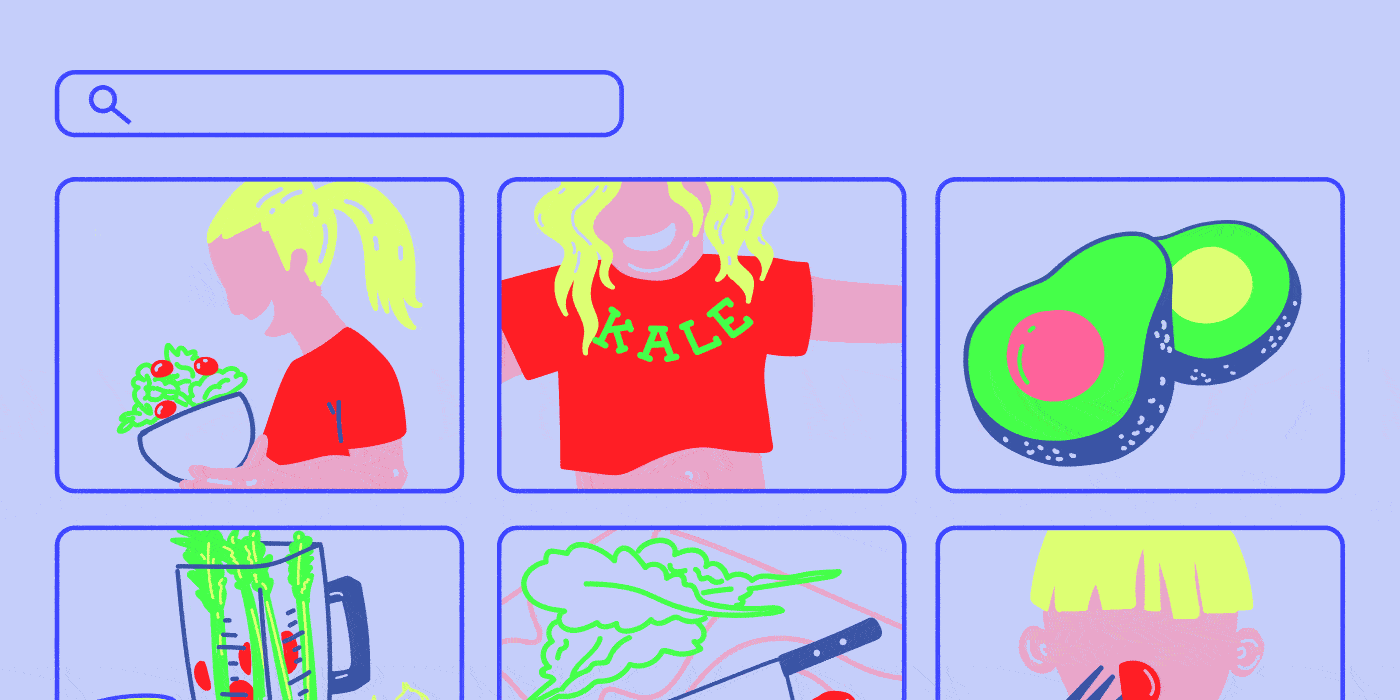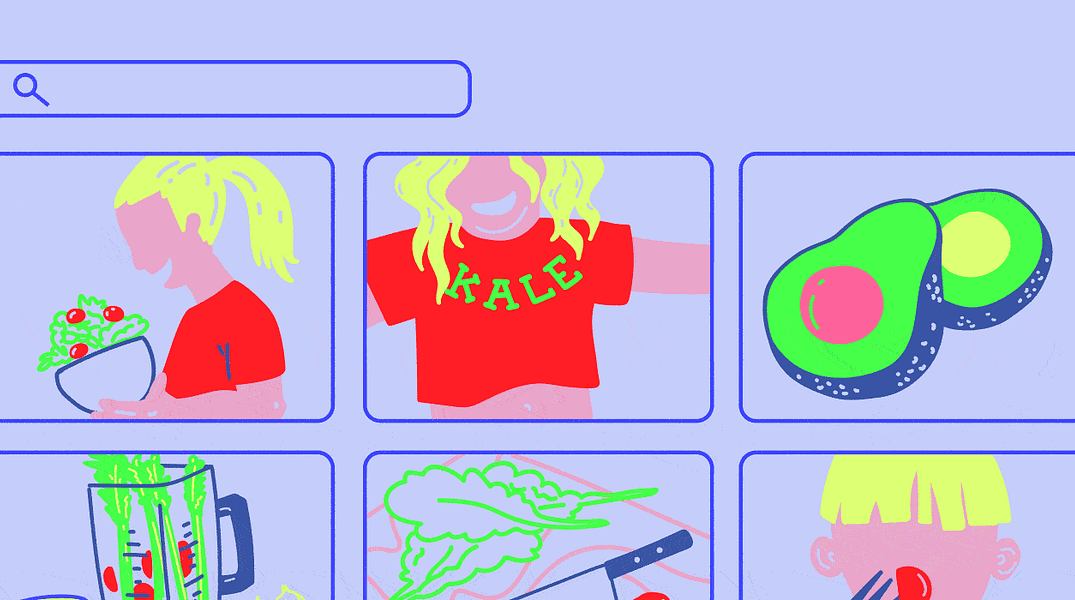
Ten years ago, I told my mom that I was going to be vegetarian. She immediately broke into tears — a reaction I felt was disproportionate to the situation.
When I was five years old, I concluded that if I didn’t need to eat a once-living being to sustain my life, I just wouldn’t. Simple as that. But being five and not knowing how to operate a stove, I didn’t have the freedom to eat the way I wanted and — as established — my mom was vehemently opposed to me being vegetarian. She was scared I would genuinely die from the lack of nourishment.
Principally opposed to the things I put in my body on a daily basis, I had to cut meat out somehow. I devised a plan to incrementally throw huge fits to get away with not eating specific meats. At five, I would stop eating beef. At 10, I would stop eating pork. And when I became an adult, I would stop eating meat altogether. The day I turned 18, the news made my mom cry.
As a person of Chinese and Vietnamese descent, who has been a vegetarian for 10 years, I’ve definitely been given the impression that I am not really Asian since I don’t eat meat.
To her credit, my mom grew up in Vietnam, hunting and fishing for her own food, and then going home to skin and gut them, too. Once, she even ate a skunk. Many of her most cherished memories had something to do with meat. To my mom, my diet is an affront to her upbringing — being vegetarian is an act of cultural discrepancy.
As a person of Chinese and Vietnamese descent, who has been a vegetarian for 10 years, I’ve definitely been given the impression that I am not really Asian since I don’t eat meat. Like people think vegetarianism can only be practiced by white people or those they consider to be basically white.
My lack of meat won’t change the fact that my family is really fucking Asian. Last year, I watched a “ritual priest” throw a live chicken at my dad as part of my grandma’s very traditional Chinese funeral. At this procession, all my aunts and uncles had to lay on their bellies and drink fake blood from bowls on the ground without using their hands. Then we watched the ritual priest get Hennessy-drunk while he sang and danced with a sword in the rain for 30 minutes.
Especially in a place like the Bay Area, vegetarians and vegans are plenty common. But that doesn’t alleviate the perceived incongruence about being POC and vegetarian. In many instances, my friends and I will assume there are vegetarian options at a restaurant if we see white people eating there. In my experience, this rule of thumb checks out. This is because many see being vegetarian as something that white people own. For example, not every pho restaurant in East Oakland is available to vegetarians. But if a pho restaurant wants to ensure that white people feel comfortable eating at their establishment, there will be vegetarian options.
To some, my diet signals that I must be far removed from the homeland and my family’s culture.
Whether or not any particular white customer is actually vegetarian is unimportant. Rather, it is the prospect of a white customer, whom people recognize can have various dietary preferences. This hypothetical pho place isn’t creating more options for me because POC do not fit in with the vegetarian archetype in people’s minds.
Honestly, I hate talking to people about what I eat. I always feel like I have to defend my diet and prove that I’m not some extremely liberal but fragile snowflake that also braids her own armpit hair.
A lot of people have told me they assumed I was a second or third generation immigrant partially due to the fact that I don’t eat meat. To some, my diet signals that I must be far removed from the homeland and my family’s culture. As if you can only be privileged enough to care about animals if you’re unburdened by the problems that POC face.
I used to think I was just being sensitive — typical “I am not _______ enough” identity crisis that a lot of POC experience. But then I heard about Mieko Scott’s experience. She’s a Black/Japanese woman and East Bay native who is opening her own plant-based vegan restaurant, Hella Nuts, in Oakland.
Scott’s father, who grew up on seafood and chicken curry, isn’t a fan of her diet either.
“He thinks I’m nuts… he thinks vegans are crazy, he calls it voodoo,” she said, noting that in the older Black community, vegans are considered fringe. “So many people within my community have a misinterpretation or different perception of what vegan is.”
She recognizes it’s not easy for everyone. “In communities like mine there aren’t many produce stores… grocery stores close at 8 p.m. Most families don’t get off of work until 6 p.m., pick up their child at 7 p.m., and sometimes you don’t make it… which means you end up at the liquor store.” For people in Scott’s community, fresh vegetables are not readily available, so a vegan diet seems impossible and “only for other nationalities.”
Abstaining from meat shouldn’t be viewed as something reserved for white people or some froufrou practice for the overly empathetic. It’s a viable, logical act of self-preservation.
But Scott is actively trying to disrupt this stigma. Hella Nuts will be serving a full vegan menu on Martin Luther King Jr. Way and 37th, definitely a diverse area in Oakland. She and her daughter also have a podcast dedicated to veganism — to share their dietary journeys and findings, ultimately, to help make a plant-based lifestyle more accessible.
On a billboard advertising Scott’s business, she deliberately chose to show her brother, a heavyset Black guy eating a vegan taco, knowing that it would challenge the stereotype about the kinds of people who eat vegan. The ad is also in stark contrast to the thin white girls in Carl’s Jr. ads eating a burger half-naked.
Picturing these images had me thinking: It’s shitty that this dietary lifestyle, with definite health and environmental benefits, is still widely considered a practice that does not involve people of color. Choosing to go meatless isn’t white nonsense like putting toddlers on leashes.
The meat industry is full of issues — from stuffing animals with antibiotics and letting them live in feces to its massive contributions to climate change. These unequivocal problems aren’t something one particular race is impervious to. Ergo, abstaining from meat shouldn’t be viewed as something reserved for white people or some froufrou practice for the overly empathetic. It’s a viable, logical act of self-preservation.
Being vegetarian isn’t realistic or attractive to everyone, but it’s been a valid option. It didn’t reduce my melanin. And though it once deeply saddened my mom, she has come to terms with it — now, we joke about how she never cooks enough char siu (barbeque pork) for me these days.







